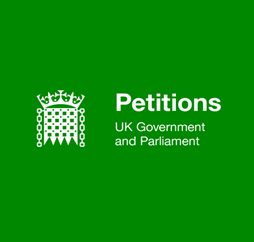Mae'r cynnwys hwn ar gael yn Saesneg yn unig.

In this second blog post, Professor Paul Chaney continues to share his research with Professors Ian Rees Jones and Ralph Fevre published by Oxford University Press and The Hansard Society, which analyses the significant rise in animal welfare petitions submitted to the UK parliament over the past decade.
This analysis is part of the research project, New arenas for civic expansion: humans, animals, and Artificial Intelligence, in WISERD’s Civil Society research programme. This topic of enquiry matters because it reveals how Westminster’s e-petitions system (introduced in 2010), is providing new opportunities for civil society to engage in setting parliamentary business.
This blog post is the second in a two-part series, exploring how Westminster public petitions on animal welfare represent a new mode of civic engagement. In the first part, I provided background information on the e-petitions system, what the petitions tell us about the nature of civil society demands on animal welfare, and the multi-level governance ‘literacy’ of petitioners. By this, I mean how much members of the public know about which tiers of government are responsible for different policy issues.
Over three parliaments (2010-19), 2,500 animal welfare petitions were submitted. They were signed by 5.7 million people. There were 93 mass-support animal welfare petitions. Seventy gained 10,000+ signatures and 23 had over 100,000 signatures. The government response to almost three quarters of petitions was ‘existing policy is adequate; no policy change is needed’. In only two cases (on recognising animal sentience in UK law and banning live animal exports), was policy change planned in response to the animal welfare petitions.
Given the low success rate of the animal welfare petitions in achieving legal or policy reform, critics might argue that the value of e-petitions is limited to simply making people feel they are engaging in an issue but actually they may be achieving very little. However, to address this, WISERD’s study applies a new analytical framework to the animal welfare dataset (Leston-Bandeira’s (2019) Legislative Functions Perspective).
The new framework highlights how petitions perform four key roles: linkage (fostering the engagement of citizens in the work of parliament), campaigning (acting as a catalyst to the campaigning work of non-governmental organisations), scrutiny (strengthening the degree to which government is held to account by the public), and policy development. As this new study shows, foremost of these roles is linkage. In other words, the analysis shows how the introduction of e-petitions a decade ago has re-shaped the direct relationship between civil society and parliament.
This is a nuanced process. It’s not only a case of members of the public seeking to set the agenda by drafting petitions and signing them. It’s also providing key opportunities for the political engagement of organised civil society.
The analysis shows that non-governmental organisations (NGOs) draft the majority of successful petitions (those achieving >100,000 signatures). They use their mobilising capacity, including using e-mail lists and social media, to promote the petitions amongst their supporters. Often overlooked, this is a significant development and underlines how, in the space of a decade, the e-petitions system has had added an important new dimension to NGOs’ action repertoires – or ways of engaging with the Westminster parliament.
By providing a new and accessible means for civil society to press policy claims on lawmakers, the e-petitions system has resulted in a significant increase in citizen engagement in the setting of parliamentary business. In addition to our earlier analysis of political parties’ pledges on animal welfare in their election manifestos, this new study also shows how, over the past decade, animal welfare has become a mainstream policy issue in UK politics.
Read the full study findings:
 Chaney, P., Rees Jones, I. and Fevre, R. (2021 forthcoming) Exploring the Substantive Representation of Non-humans in UK Parliamentary Business: A Legislative Functions Perspective of Animal Welfare Petitions, 2010-19, Parliamentary Affairs – A Journal of Representative Politics, Oxford University Press/ The Hansard Society, ISSN 0031-2290, EISSN 1460-2482
Chaney, P., Rees Jones, I. and Fevre, R. (2021 forthcoming) Exploring the Substantive Representation of Non-humans in UK Parliamentary Business: A Legislative Functions Perspective of Animal Welfare Petitions, 2010-19, Parliamentary Affairs – A Journal of Representative Politics, Oxford University Press/ The Hansard Society, ISSN 0031-2290, EISSN 1460-2482
